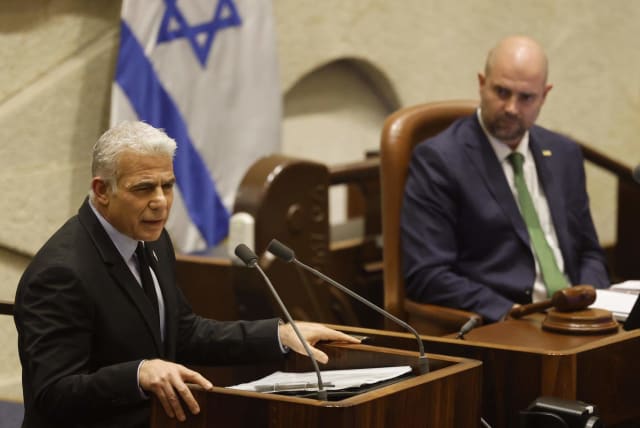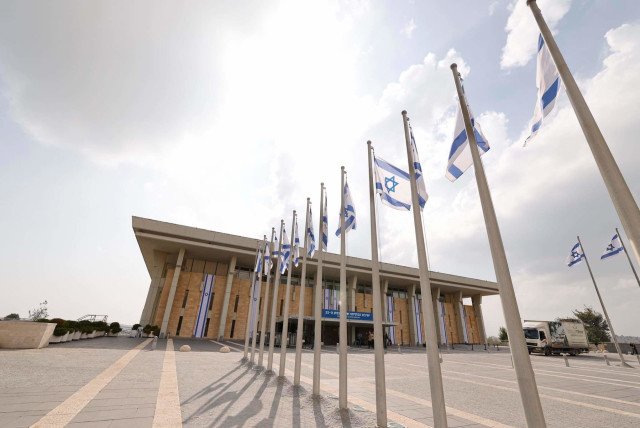What happens during Knesset recess? - explainer

An inside look into what occurs when the Knesset goes into spring recess.
Israel's Knesset (parliament) officially began its spring recess today (Sunday) and will reconvene on May 19 following Israel's Independence Day.
While it is not uncommon for parliaments to hold monthslong recesses, Members of the Knesset from the opposition criticized the coalition for its refusal to cancel the recess during wartime, and also considering the fact that there are still 133 Israelis being held hostage in Gaza.
Recess does not mean full parliament shutdown
Protests against the government and in favor of a hostage deal also voiced these criticisms, but the coalition went forward with the recess. Still, the Knesset's recess does not mean Israel's parliament completely shuts down.
The Knesset's 15 statutory committees and additional ad hoc committees may convene to debate legislation during the recess, subject to approval by the Knesset Home Committee.
Even if the Home Committee, traditionally led by a coalition member, denies a committee chairperson's request to convene the committee, the Knesset Speaker himself may also authorize committee sessions in "special cases" at the request of the committee's chairman, the government, or one-third of the members of that specific committee.
In any case, the committees do not hold votes during the recess and thus can only debate legislative proposals without approval. The Knesset plenum can also still convene during the recess but not carry out voting. The Knesset Speaker must convene the plenum at the request of at least 25 MKs.
However, these Knesset meetings only include "agenda proposals," which largely include speeches on a given topic and not actual legislation. The government may also demand to convene the Knesset in a written request from the government secretary to the Knesset secretary.
The fact that no votes are held during the recess means that the Knesset cannot use its central tool to send the country to an election if it wishes to do so – passing a bill for the Knesset to disperse itself. However, at the request of 61 MKs, the plenum must convene within a week in order to vote on a no-confidence motion.
Known as "constructive no-confidence," this process replaces the existing government with a new one without the country having to hold an election. This has never happened in Israel's history and is extremely unlikely.
Israel's government ministries continue to operate as usual during a Knesset recess, but the recess makes it very unlikely for the government to fall until the Knesset reconvenes on May 19.
Members of the opposition thus accused the coalition of refusing to cancel the recess in order to guarantee the government's stability for another six weeks.
A number of issues threatened the government's stability on the eve of the recess, including a crisis between Prime Minister Benjamin Netanyahu and the haredi parties in government over a push to draft haredi men into the IDF and threats by far-right National Security Minister Itamar Ben-Gvir to leave the government over potential concessions in a hostage deal.
Knesset members currently make NIS 47,583 a month before taxes, including during recess. The Knesset last raised its members' salaries by 5.1% in January 2023. They also receive a car and other services.
Yesh Atid announced on Sunday that its Members of Knesset would "not rest" and continue working during the recess.
The party called the coalition's decision to recess "disconnected" and listed a number of actions it would take during the recess, including a "roaming office" that would meet with evacuees at hotels, tours in areas that were damaged during the war, visiting the injured in hospitals, and participate in protests against the government.
Jerusalem Post Store
`; document.getElementById("linkPremium").innerHTML = cont; var divWithLink = document.getElementById("premium-link"); if (divWithLink !== null && divWithLink !== 'undefined') { divWithLink.style.border = "solid 1px #cb0f3e"; divWithLink.style.textAlign = "center"; divWithLink.style.marginBottom = "15px"; divWithLink.style.marginTop = "15px"; divWithLink.style.width = "100%"; divWithLink.style.backgroundColor = "#122952"; divWithLink.style.color = "#ffffff"; divWithLink.style.lineHeight = "1.5"; } } (function (v, i) { });

